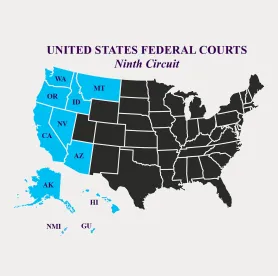Arbitration clauses with class action waivers remain one of the most effective lines of defense against consumer class actions. They are also one of the most challenged. As we have discussed in prior posts, including here, here, and here, consumer arbitration clauses have come under fire in California if they prohibit plaintiffs from obtaining “public injunctive relief” in any forum. This is the so-called McGill rule, which comes from the California Supreme Court’s decision in McGill v. CitiBank, N.A., 2 Cal.5th 945 (2017).
“Public injunctive relief,” the California Supreme Court explained, is relief that has the primary purpose and effect of prohibiting unlawful acts, including false advertising, that threaten future injury to others out in the general public. By contrast, private injunctive relief is relief that rectifies individual wrongs and resolves disputes between parties.
So far, when consumers have challenged class action waivers under the McGill rule, the parties have focused on two issues: (1) whether the claims at issue, and the remedies sought, constituted “public injunctive relief,” such that the McGill rule would even come into play; and (2) whether the McGill rule was pre-empted by the Federal Arbitration Act. Most cases have side-stepped whether the clauses permit or preclude public injunctive relief in the first instance.
That may now change. In DiCarlo v. MoneyLion, __ F.3d __ (9th Cir. Feb. 19, 2021), the Ninth Circuit rejected the consumer’s challenge to an arbitration provision, ruling that a clause permitting an arbitrator to award whatever remedies are available in an individual action permitted the award of “public injunctive relief,” even though the clause separately prohibited the consumer from bringing a class action, joining her claims with others, and acting as a private attorney general.
In the case, the consumer argued that plaintiffs act as private attorneys general when they seek public injunctive relief. The Ninth Circuit noted that the argument was at least facially intuitive: “One would think that a person seeking a remedy that by and large benefits the general public and that benefits the plaintiff, if at all, only incidentally and/or as a member of the general public is vindicating the public’s rights,” and thus that person would seem to be “acting in the purest sense as a private attorney general.” DiCarlo, Slip at 14. Of course, many, if not all, consumer arbitration clauses preclude plaintiffs from acting as private attorneys general. Had the plaintiff in DiCarlo prevailed, a wide swath of arbitration clauses may have been invalidated.
But the Ninth Circuit sided with the defendant. Citing McGill and California’s passage of Proposition 64, the Ninth Circuit concluded that consumers can obtain “public injunctive relief” in individual actions, and thus do not need to act as private attorneys general to obtain that relief. “In California, litigants proceeding in individual lawsuits may request public injunctive relief without becoming private attorneys general. . . . Since the arbitration provision does not violate the McGill rule, it is valid.”
The Ninth Circuit’s decision should aid companies across a wide-spectrum of consumer facing industries, many of which are having their arbitration clauses come under attack by plaintiffs asserting claims under California’s consumer protection statutes.




 />i
/>i

